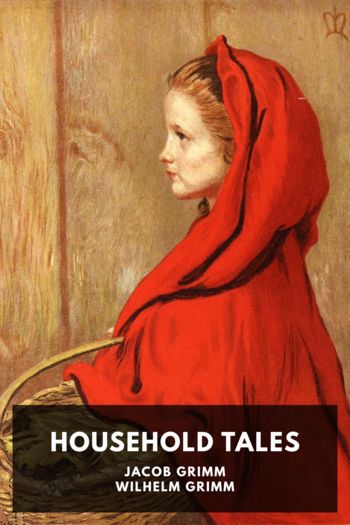The Tales of the Wanderer Volume One: A Book of Underrealm (The Underrealm Volumes 4) by Garrett Robinson (read dune TXT) 📗

- Author: Garrett Robinson
Book online «The Tales of the Wanderer Volume One: A Book of Underrealm (The Underrealm Volumes 4) by Garrett Robinson (read dune TXT) 📗». Author Garrett Robinson
“That is not what I mean, and you know it,” said Duana. She turned her gaze east, and suddenly it was as if she saw across a great distance, through the walls of the brewery and into a far land beyond. “You and I both know you are not like most people. I saw it when first I found you in those woods, and I have seen it ever since you came to live with me. I saw it again when you trounced Ciaran the first time. Selfishness made me keep you here as long as I have. But I think you are meant for other things, Mag. Things far beyond the meaningless bounds of this unimportant town.”
Again Mag’s throat had grown thick, and words were hard to come by. “It was important to me.”
“I know it,” said Duana softly. She swiped at her eyes, as Mag had done before, and stood. “But we have both already said how looking back is worthless. Come. I will give you what I can spare. I only wish I still had the tavern, so that I could give you a horse.”
They gathered Mag’s things, such as they were, and soon she was ready. They shared one last mug—so far as Mag knew, she would never have another cup of Duana’s ale again—and then they said their farewells. Mag never told me exactly what they said to each other then, but some things it is better not to know.
And when it was done, Mag set off into the wilderness of the Dorsean forest, alone and penniless. She did not know it was the start of a road that would lead her to me, and one day to Sten. But it would also take her to Northwood, and to that night in the Greenfrost when all hope seemed lost.
“I hate this story,” declared Sun.
Albern arched an eyebrow at her. “Do you now?”
“I do,” said Sun. “Most every story I ever heard of Mag was a happy tale, an adventure from which she emerged victorious. Yet now you are only telling me of what seem to be her very worst sorrows. And you are hammering me with them, as if they were nails and I were a stubborn plank, again and again. It is as though you want to be absolutely sure I understand how abjectly miserable she was.”
“Well,” said Albern, “what did you expect when you asked to hear how she died?”
Sun’s eyes went wide. “Wait. Are you telling me that story now? When I asked you to tell me, you did not say you were going to do it!”
Albern snorted. “I did not say I would not, either.”
Sun snatched handfuls of her hair, for she had a sudden urge to rip it all out. “But Albern, this is all wrong. This is not anything like how I heard Mag died. I thought it had to do with …” She swallowed through a dry throat. “With that other matter.”
Maddeningly, Albern only shrugged. “And not for the first time, I must ask you, Sun: who do you believe? Skalds from your home, or the man who was there?”
Sun folded her arms in a huff. “And yet you will not even say it. Tell me the truth: is this the story of how Mag died?”
Albern stopped beside her in the street. He turned and looked her straight in the eye. Sun felt transfixed by him, by the sorrow she saw in his dark expression.
“Yes,” he said. “This is how she died.”
They stood there for a long, silent moment in the middle of the street. Passersby moved around them with muttered complaints. The lowering sun cast heavy lines of black shadow across Albern’s eyes and cheeks, and his unmoving face bore down into Sun. She felt dumbstruck.
“But … so this is the end of the tale?”
“Were you not eager to hear it?” said Albern. “You wanted to get here. Why do you object now?”
“Because … because I … I do not know why!” said Sun. “But what kind of storyteller lets his listener know how the tale will end?”
“Sun,” said Albern slowly, “you know Mag dies. You have always known that. One of the first things you ever asked me was how she died. So how can it ruin the tale for you, if you have always known that would be the ending? Any tale would end with the hero’s death if talespinners did not cut themselves off at a happier moment of victory. And how many stories have you asked your family’s skalds to tell you again and again, no matter how many times you had already heard them? Why did you want to hear those stories after the first time, if you already knew what would happen?”
“That is different,” said Sun. But she said it quietly, and she was not sure she believed it. “I felt like … those stories had a point, or they seemed to. Whether they ended well or poorly, there was a reason for it all. But I can see no reason for Mag’s suffering in the Greenfrost, no greater purpose served at all.”
“Well, neither did we at the time,” said Albern. “But you have struck on something there. Even in a tale’s darkest moments, it is the storyteller’s job to make the audience feel as though their time is not being wasted—that there might be some hope at the end of a weary road, or at least some semblance of satisfaction. I am sorry you feel otherwise now. But stay with me a little longer, and when I am done, then you can tell me if you are still disappointed.”
Sun sighed. “That prospect holds little hope for me, either. This tale is why we started traveling together. If you finish the story, does that mean we are done?”
Albern’s expression, which had been stern and





Comments (0)